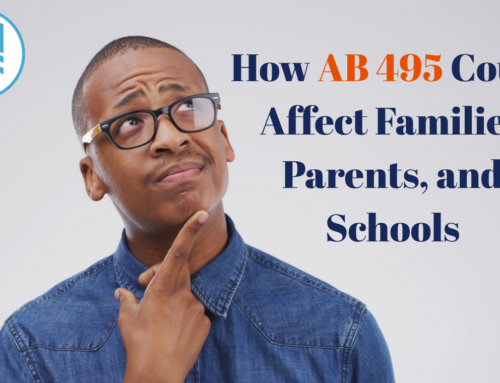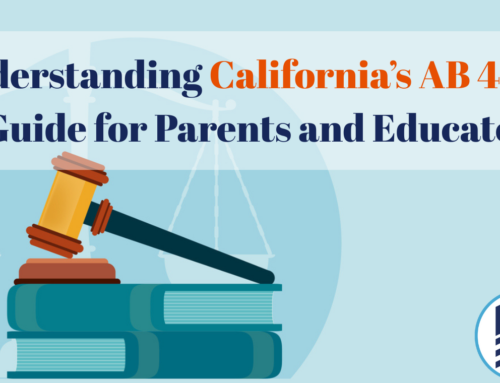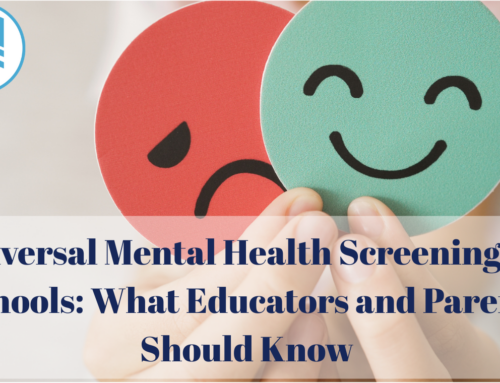
“Glenda’s Plan for Our Schools!” read a brightly colored sign hanging in front of me. “Fiscal responsibility, promoting community and parental involvement, and increasing special education programs and services are just some of the ideals that Glenda is committed to!”
I realized that I was looking at a school board campaign flyer. The bold font loudly encouraged me to vote for Glenda.
“You have a choice between real change or the status quo for your children’s academic future!” The friendly face of the middle-aged woman in a bright red jacket and dazzling smile completed the compelling campaign ad.
School board elections are certainly not one of the country’s prominent elections. They generally don’t receive national coverage or trending hashtags. How important could they be?
If you don’t know what school boards do, it’s hard to imagine the effect they have. How much influence do they have over local education? What do they determine and what policies can they put into place?
In short—what exactly does a school board do?
What Is a School Board?
A school board is made up of locally elected or appointed officials. Most of the time, board members are volunteers with no salary involved. They are simply citizens who care.
The general purpose of a school board is to oversee the local school system. They establish policies to make sure that students have the best possible experience. When it comes to your local school district, they have considerable influence.
Boardable points out, “In order to be as effective as possible, it is important for every member of the board to understand these responsibilities and take them seriously. In addition, voters electing members of the school board should also be aware of the board’s responsibilities, so they can select the best possible candidates for the job.”
So, let’s investigate the specifics of school boards. What do you need to know about the school board in your community to help you vote well (or perhaps decide to run for school board yourself)?
Who Can Serve on a School Board?
“School board members can either be elected by voters or appointed by the mayor or local government leaders,” explains Stand for Children. “Size varies by district, but most boards have between three and seven members. Most terms last four years and are unpaid.”
School board members are dedicated to the community they serve, and they are generally the average Joes of the school district. Specific states and districts may have slight differences in their guidelines, but generally, almost anyone can serve. Most school boards are open to all registered voters who live in the district. A common restriction is that board members generally can’t already be employed by the district in another capacity.
What Do School Boards Do?
So, we’ve seen who can be on a school board. But what do the board members do? While specific powers vary from state to state, here are some of the basics:
1. Create a vision and set goals for the schools in their district
GreatSchools.org understands this responsibility well. “What philosophy of education do we want our local schools to have? What should our students know and be able to do when they graduate? How can schools best educate students who come from diverse backgrounds? These are some of the types of questions that a school board must ponder when trying to establish a vision.”
When creating a vision and setting goals, responsibilities might include:
- Establishing a balanced annual budget
- Issuing interim financial reports
- Negotiating contracts with employee unions
- Closing or constructing schools, etc.
Someone has to decide where the local school is headed. Someone has to listen to the community and then use that feedback to create a plan to steer the local schools in the right direction. Someone has to define clear, achievable goals and come up with a way to achieve them.
That “someone” is the local school board.
2. Set up a practical plan of attack to transform vision and goals into reality
This “plan of attack” is called policy. It’s the school board’s responsibility to create and enact policies to make sure that the school district moves in the right direction.
The National School Board Association (NSBA) points out, “The school board represents the community’s voice in public education, providing citizen governance and knowledge of the community’s resources and needs, and board members are the policy-makers closest to the student.”
The policies made by the school board directly touch the day-to-day educational activities of students and teachers. Since most school board members are elected by taxpayers, they have a responsibility to listen to the community when implementing policies in their district.
“In the first category of responsibilities, vision setting, school boards create rules and goals for the school district,” states the Center for Public Justice. “They also must enforce laws and test standards from the federal and state governments. The policies they make affect the schools every day.”
What are some examples of these policies?
- Setting the attendance and school discipline rules
- Setting the goals for how well students should do academically
- Helping to choose the curriculum
- Making the school calendar
- Purchasing the textbooks used by students
Diligent Insights notes that the school board has a great responsibility to make sure that they are following all local, state, and federal laws when making policy for their local school district. State and federal funds typically flow into local schools under the condition that the district follows state and national standards. “It is imperative that school boards are aware of the various federal and state laws, regulations, and local policies that can impact the work for the district. These laws and policies govern the work of the school board. It is crucial that school boards stay informed of these policies and regulations and how they may impact the school board’s decisions and actions.”
3. Make sure that there is accountability
“True accountability depends on open decision making, community engagement and support, and receptivity to new ideas and constructive criticism,” the National School Boards Association (NSBA) tells us.
The school board makes sure that the district aligns with the community’s expectations. These may include high academic standards, transparency, and accountability for the actions, policies, and results of the school district in general.
According to the Ohio School Boards Association, a culture of accountability requires the board to:
- “set clear goals and expectations informed by data,
- demonstrate commitment toward improving governance,
- believe in the abilities of your district’s students and staff,
- monitor organizational performance, improvement efforts, and achievement of district goals,
- provide constructive feedback, and
- take action when progress is not evident.”
The concept of school board accountability can be unclear and sometimes deviates from community-based standards. The NSBA, which has recently come under fire for its approach to parental involvement, says:
“The school board has a clear accountability framework for assessing the quality of its schools based on progress over time. This framework goes beyond test scores to monitoring results in terms of citizenship, safety, and the arts, so all children graduate as well‐rounded citizens….The word accountability means different things to different people. Most agree, though, that the goal of accountability is ensuring students achieve at the highest levels.”
4. Make sure there is effective communication between the community and the school district
One of the board’s key jobs is listening to the local community’s concerns and responding appropriately. They are the community’s direct link to the school district. This means that the school board should communicate to the public what the district’s priorities are and how they relate to the wishes and concerns of the community.
School board members are meant to be advocates for their local community. They balance representation of the taxpayers who elected them with prioritization of the students’ and public school systems’ interests. From policy-making to budgeting, the local school board should strive to create an atmosphere of support, collaboration, and success within their local community.
5. Make challenging and diverse decisions
“A school board will regularly face issues that invite a diversity of strong opinions and passionate beliefs,” GreatSchools.org reminds us. “Their goal should, however, remain the same: to pursue consensus, to reconcile differences, and to reach compromises, all in the service of its students.”
A good school board will fairly accurately represent the surrounding community, which means that there can be a very diverse atmosphere within the board itself.
The Center for Public Justice addresses this briefly. “Although school boards are structured differently, good boards share common traits. One of these traits is that they represent diverse institutions within the community, such as parents, business leaders, nonprofit workers, health care workers, and educators. This diverse set of perspectives allows for a more comprehensive ability to approach issues and concerns within the schools and the community.”
With diversity comes a variety of ideas, goals, and solutions. It’s the school board’s job to come together and formulate solutions and institute policies that bring people together while still accomplishing the district’s goals.
This is not an easy task, and elected school board members must keep their primary purpose in mind. Nothing can really be accomplished without compromise and a spirit of unity. It’s the school board’s responsibility to collect all of the ideas and objectives of both its members and the local community and come together to make things work.
Your Involvement
Community involvement is a vital piece of the education puzzle. You can—and should be—involved in your local education system. As a taxpayer, you have the right to communicate with and influence your local school board for the school district’s good. Below are some ways that you can get involved!
- Attend school board meetings regularly.
- Contact your local school board members with concerns and encouragement.
- Vote. (But first, research the school board candidates and make sure that you make an informed vote for the good of students and the community.)
- Run for school board. (Never thought about it before? We’ll show you how.)
The Center for Public Justice says it well: “School boards hold a lot of power … The policies that school boards make—from the length of the school day, to the rigor of the curriculum used, to how students are disciplined—are important. School board members may not spend every day in the classroom, but their decisions affect the students and their families every day.”
The school board is an extremely influential body in our local communities, especially when it comes to our children. We must stay informed about who they are and what they’re doing.
Now that you know what school boards do, what are you going to do about it?





[…] is somewhat mysterious, with an ill-defined purpose and a vague connection to local schools. What exactly does a school board do, anyway? And an even more critical question: Why should any ordinary citizen run for a position on the school […]
[…] involved in the policies and decisions that affect your kid’s school experience. The school board oversees the local school system, establishing policies, choosing curriculum, and handling dozens of other school-related details. […]
[…] more on our blog about what school boards do and why you should […]
[…] Even school board elections aren’t typically exciting races with wide-scale fanfare and media coverage. The bottom line is that, even with the recent national attention, many people don’t know what a school board does. […]
[…] School board elections aren’t typically exciting races with wide-scale fanfare and media coverage. The bottom line is that, even with the recent national attention, many people don’t know what a school board does. […]
[…] more on our blog about what school boards do and why you should […]
[…] is somewhat mysterious, with an ill-defined purpose and a vague connection to local schools. What exactly does a school board do, anyway? And an even more critical question: Why should any ordinary citizen run for a position on the school […]